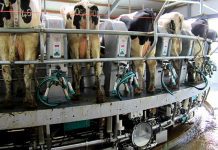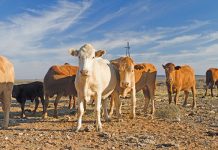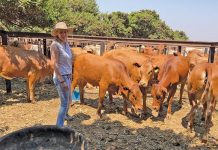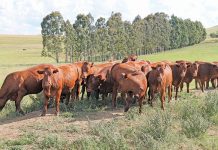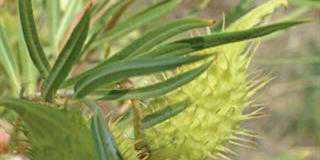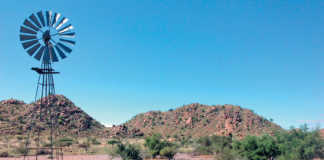MEC for Agriculture and Environmental Affairs in KZN, Mtholephi Mthimkhulu, has committed R100 million to the rehabilitation of dilapidated livestock dip tanks and the formation of livestock associations in the province’s communal areas this year. His commitment is seen as a well-needed boost for the seven-year-old project, which has fallen by the wayside in recent years due to internal politics.
Speaking at a dip tank rehabilitation thanksgiving ceremony in the Greater Umtshezi area of the KZN Midlands, Mthimkhulu said that between 2000 and 2006 the veterinary services section of the KZN Department of Agriculture, through the state vet office in Estcourt, had assisted in the rehabilitation of more than 56 communal dip tanks that served more than 3 700 communal cattle farmers in Greater Umtshezi.
“The department intervened in response to pleas for assistance from the subsistence cattle farmers of the Umtshezi Livestock Association that derelict dip tanks in its respective areas be rehabilitated. So far, more than 42 200 heads of livestock have benefited since the dip tanks were rehabilitated,” said the MEC’s spokesperson Mbulelo Baloyi. The KZN Department of Agriculture originally allocated R200 000 to buy treated poles and related materials for the repair of these dip tanks. Local animal health controllers and technicians then trained communal livestock owners on how to constitute and administer livestock associations.
“As a department, we would like other communities to emulate the Umtshezi Livestock Association, which has worked successfully with us during the rehabilitation of these dip tanks,” Mthimkhulu told his audience. “I have prioritised the development of livestock associations during this financial year as I believe that this programme will have an immediate economic impact in the shortest possible time.” The MEC added that the R100-million allocation in 2007/08 would increase to R130 million for the 2008/09 financial year, and then to R160 million for 2010/11. – Lloyd Phillips

